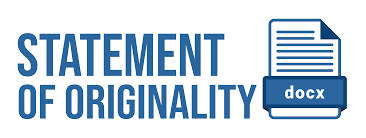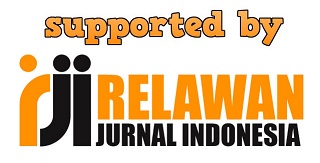STRATEGIES OF IMPOLITENESS IN THE KEEPING UP WITH THE KARDASHIANS SERIES ON YOUTUBE
DOI:
https://doi.org/10.32520/eji.v7i2.2440Keywords:
impolitness, impolitness strategy, pragmaticsAbstract
The primary goal of this descriptive qualitative study was to investigate the strategies of impoliteness used by the speakers in the Keeping Up With The Kardashians series on YouTube. The utterances which contain the strategies of impoliteness uttered by the speakers within the series were taken as the data. Furthermore, the data were analyzed by identifying the impoliteness strategy according to Culpeper (2005)’s theory. Descriptive qualitative by Creswell & Creswell (2018) was performed in this research. The observational method was used as the method to collect the data. Furthermore, to analyze the data pragmatic identity method was conducted along with equalizing technique. The results showed at least fifteen utterances produced by the speakers with an impoliteness strategy in the three videos of the Keeping Up With The Kardashians series. The four (4) data showed negative impoliteness, four (4) data showed sarcasm / mock politeness, three (3) data showed withhold politeness, two (2) data showed bald on record, and two (2) data showed positive impoliteness. The negative impoliteness was the most frequently used by the speakers in the Keeping Up With The Kardashians series. Impoliteness is not always performed by rude behaviors but a simple utterance can also indicate the act of impoliteness.
References
Creswell, W. J., & Creswell, D. J. (2018). Research Design Qualitative, Quantitative, and Mixed Methods Approaches (5th ed.). Los Angeles: SAGE Publications, Inc.
Culpeper, J. (1996). Towards and anatomy of impoliteness. Journal of Pragmatics, 25(3), 349–367. https://doi.org/https://doi.org/10.1016/0378-2166(95)00014-3
Culpeper, J. (2005). Impoliteness and entertainment in the television quiz show: The Weakest Link. Journal of Politeness Research, 1(1), 35–72. https://doi.org/https://doi.org/10.1515/jplr.2005.1.1.35
Kadhum, F. M., & Abbas, F. N. (2021). How impoliteness is portrayed in a school context: The Marva Collins as a case study. Arab World English Journal, 12(3), 144–158. https://doi.org/https://dx.doi.org/10.24093/awej/vol12no3.10
Milal, D. A., & Pramono, C. A. (2021). Impoliteness addressed to different genders and their response in The Kitchen Nightmares, a TV reality show. Journal Pf Pragmatics Research, 3(2), 131–146. https://doi.org/http://dx.doi.org/10.18326/jopr.v3i2.131-146
Miles, M. B., Huberman, A. M., & Saldana, J. (2014). Qualitative data analysis: A methods sourcebook (3rd ed.). United States of America: SAGE Publications, Inc.
Novalia, A., & Ambalegin, A. (2022). Impoliteness strategies found in Deddy Corbuzier’s Podcast on YouTube. E-Journal of Linguistics, 16(1), 136–144. https://doi.org/https://doi.org/10.24843/e-jl.2022.v16.i01.p14
Pangaribuan, M. R., Rangkuti, R., & Lubis, A. R. (2021). Impoliteness strategies and power peformed by netizens on Twitter. Jurnal Darma Agung, 29(2), 218–222. https://doi.org/http://dx.doi.org/10.46930/ojsuda.v29i2.1055
Putri, S. D., Dwi, P., & Nugroho, M. (2021). Language investigation on impoliteness served at Indonesia Lawyers Club talk show. English Language and Liteature Intenational Conference Proceedings, 4, 442–446.
Ratri, A., & Ardi, P. (2019). Power and impoliteness in the Devil Wears Prada movie. English and Literature Journal, 6(1), 33–50. https://doi.org/https://doi.org/10.24252/elite.v6i1a3
Sari, P. I., Emmiyati, N., & Asnur, M. S. (2019). Impoliteness strategies in Peter Rabbit movie. English and Literature Journal, 6(2), 222–238. https://doi.org/https://doi.org/10.24252/elite.v6i2a9
Sudaryanto, S. (2015). Metode dan aneka teknik analisis bahasa (1st ed.). Yogyakarta: Sanata Dharma University Press.
Suhandoko, S., Lyatin, U., & Ningrum, D. R. (2021). Impoliteness and gender differences in the Edge of Seventeen movie. Journal of Literature and Language Teaching, 12(2), 228–242. https://doi.org/10.15642/NOBEL.2021.12.2.227-242
Yule, G. (2017). The study of language (6th ed.). United Kingdom: Cambridge University Press.
Downloads
Published
Issue
Section
License
Copyright (c) 2023 Nadha Jelang Ramdhany, Ambalegin Ambalegin

This work is licensed under a Creative Commons Attribution 4.0 International License.




















